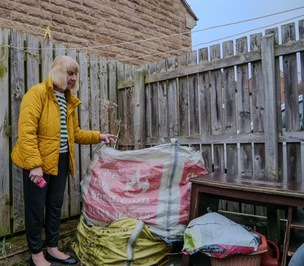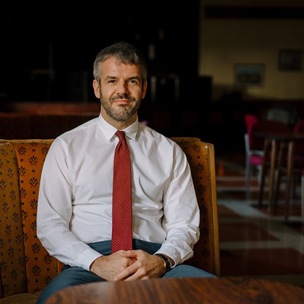ONE in 20 adult deaths in Barnsley were caused by air pollution in 2023, new figures suggest.
The Department for Environment, Food and Rural Affairs (DEFRA) analyses the proportion of deaths among those aged 30 and older caused by air pollution, specifically by fine particle matter (PM2.5).
The figures show 5.2 per cent of deaths among this cohort in Barnsley in 2023 were attributable to particulate air pollution.
It was up from 4.9 per cent the previous year and the highest figure since 2019, before the Covid-19 pandemic.
Across England, 5.2 per cent of adult deaths were attributable to particulate air pollution in 2023.
It was down from 5.8 per cent the year before and the lowest figure since records began in 2018.
It means that although the national average is decreasing, air pollution deaths in Barnsley are on the rise.
The Department of Health and Social Care says poor air quality is an important public health issue, as it can develop and worsen potentially fatal conditions such as coronary heart disease, stroke, respiratory disease, lung cancer, and asthma.
Separate DEFRA figures show the average concentration of fine particulate matter stood at seven micrograms per cubic metre of air in England in 2023 the smallest level registered since records began in 2018.
In Barnsley, this figure stood at around 6.9 micrograms per cubic metre of air.
Jenny Bates, air pollution campaigner at Friends of the Earth, warned while air pollution has declined across England, further evidence shows ‘how dangerous it truly is to our health’.
She said: “This is exactly why better public awareness, although important, is not enough.
“It’s up to the government to mandate more action from the sectors most responsible, including carbon-intensive transport, woodburning and agriculture.
“Bringing the legal limits for key pollutants such as fine particle pollution into alignment with WHO guidelines would be a good place to start.”
Jane Burston, chief executive at the Clean Air Fund, welcomed the smaller proportion of deaths attributable to air pollution in England, saying it shows the effects of increasing clean air initiatives in urban areas across the country.
But she warned air pollution remains ‘the biggest environmental threat to our health’, adding it has a ‘disproportionate impact’ on children and vulnerable people.
“We must continue to invest in a future where every child breathes clean air,” she said.
Coun Wendy Cain, cabinet spokesperson for public health and communities, told the Chronicle: “We continuously monitor and review outdoor air quality levels, and together with our partners, we are committed to addressing air quality, climate change, and improving the health and wellbeing of our residents.
“Initiatives like Barnsley Intelligent Transport Systems - which aim to minimise the traffic problems, investment in electric vehicle charging infrastructure, active travel schemes, enforcement of Clean Air regulations, and the latest SYMCA’s decision to take over control of the bus network in South Yorkshire are examples of workstreams that are being implemented to support positive behaviour change, reduce emissions and improve air quality in the area.”


























